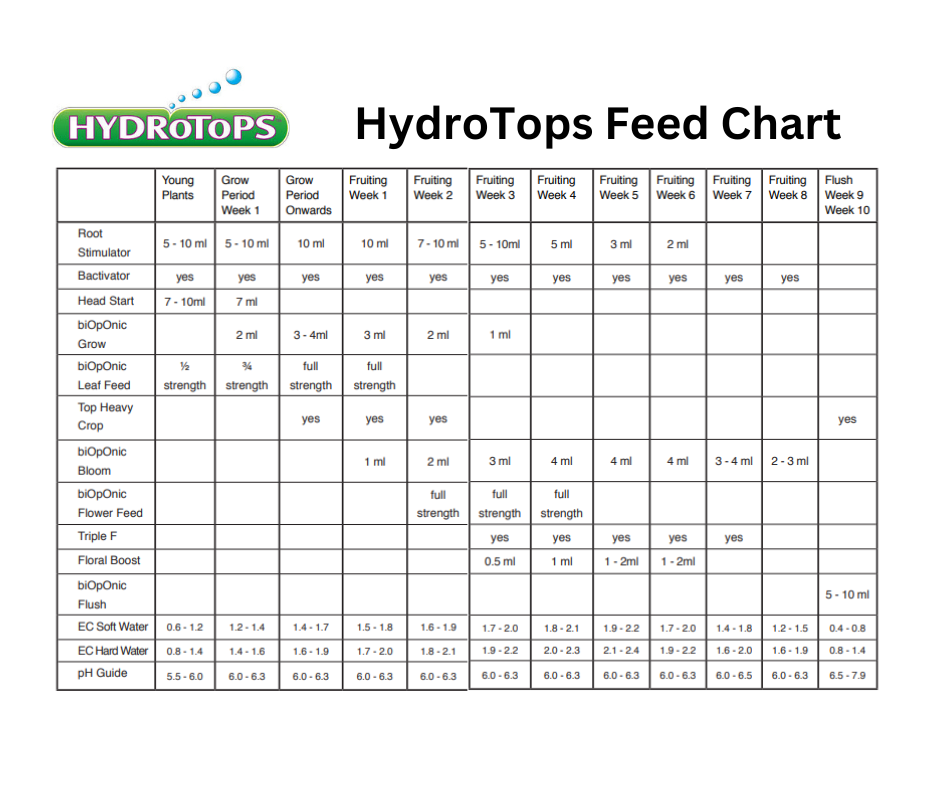A Complete Guide to the Hydrotops Feed Chart
When it comes to cultivating healthy and thriving plants, one tool that some growers frequently turn to is the Hydrotops Feed Chart – a detailed guide outlining the specific nutrients your plants need at each stage of their growth cycle.
As a renowned brand in the plant nutrition industry, the Hydrotops feed chart is a structured nutrient plan that will ensure your grow receives the optimal balance for vigorous development.
It basically provides a week-by-week schedule that specifies the type and quantity of nutrients to administer to your plants – for maximum yield and quality.
Understanding the key components of the Hydrotops Feed Chart
Base Nutrients: The fundamental building blocks for plant growth, Hydrotops' base nutrients are formulated to provide a balanced mix of macro and micronutrients that support overall plant health.
Growth and Bloom Phases: The feed chart distinguishes between the vegetative (growth) and flowering (bloom) stages of plant development. During the growth phase, nutrients focus on supporting root development and foliage. In contrast, the bloom phase emphasises elements that promote flower and fruit production.
Additives and Boosters: The Hydrotops feed charts often include recommendations for supplementary products such as root stimulators, bloom boosters and foliar sprays - additives which can provide extra support during critical growth periods, enhancing nutrient uptake and plant resilience.

3 top tips for how to Use the Hydrotops Feed Chart
Identify the Growth Stage
Determine whether your grow is in the seedling, vegetative or flowering stage and read the appropriate section.
Measure Accurately
Use precise measurements when mixing nutrients as overfeeding or underfeeding can lead to nutrient imbalances, which may harm your plants.
Monitor and Adjust
Regularly check your plants for signs of nutrient deficiency or excess. The feed chart is a guideline, but environmental factors such as light, temperature and humidity can influence nutrient needs.
